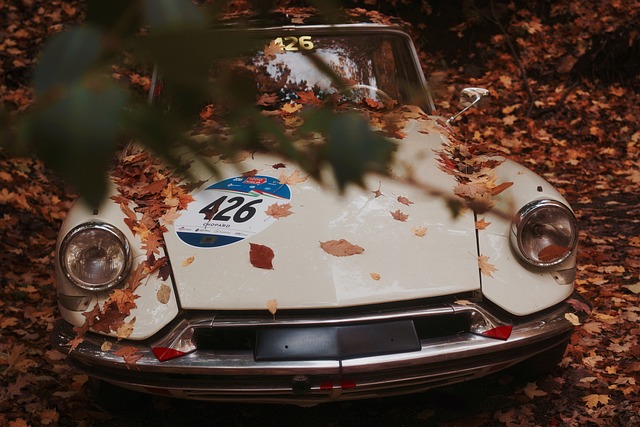lucky 🏀 The Science of Luck: Unraveling the Mysteries Behind Fortunate Fortunes

The Science of Luck: Unraveling the Mysteries Behind Fortunate Fortuneslucky

When we talk about luck, we often envision a serendipitous encounter, a last-minute boost of fortune, or maybe that moment when a simple decision leads to an unexpected windfall. But what if, behind these happy coincidences, there’s a tapestry woven with threads of science, psychology, and a sprinkle of magic? Buckle up, because we’re about to embark on a journey to explore the captivating world of luck!
First, let’s acknowledge that luck isn’t just a whimsical notion confined to the pages of fairy tales or the fleeting moments of casino excitement. Research indicates that our perception of luck may be closely tied to our mindset and behaviors. Often, people who believe they are lucky tend to have a more positive outlook on life, which in turn influences their experiences and opportunities. This phenomenon is known as the “luck factor,” and it suggests that our beliefs and attitudes can play a crucial role in our experience of fortune.
However, this isn’t merely about wishful thinking or crossing your fingers while throwing salt over your shoulder. Studies have shown that lucky people often engage in specific behaviors that make them appear luckier than their less fortunate counterparts. These behaviors include networking, being open to new experiences, and, perhaps most importantly, maintaining a proactive approach to life. In essence, luck favors the bold!
Imagine this: you’re at a social event, and rather than clinging to your phone, you decide to mingle. You strike up a conversation with someone who shares your passion for adventure. That connection could lead to a job opportunity, a lifelong friendship, or even a new hobby! This scenario illustrates the concept of “serendipity,” where fortunate outcomes emerge from chance encounters. It’s a reminder that luck often dances hand in hand with initiative and openness.
Moreover, the role of intuition in luck cannot be understated. Many individuals who consider themselves lucky often report trusting their gut feelings when making decisions. This instinctual approach can lead to unexpected, favorable outcomes. But the question arises: is it all about intuition, or do we have a deeper, scientific understanding of what luck entails? lucky

Researchers have delved into the psychology of luck and found that lucky individuals often exhibit traits such as resilience, adaptability, and a strong sense of self-efficacy. This means that when faced with challenges, they are more likely to bounce back and seek out new opportunities, rather than wallowing in misfortune. It’s almost as if they have an internal compass guiding them toward the silver linings hidden within life’s clouds.lucky
Let’s not forget the role of randomness and probability in the discussion of luck. Life is inherently unpredictable, and much of what we perceive as luck may simply be the result of chance. For instance, winning a lottery or a game of chance is undeniably a matter of luck, but what about the everyday occurrences that seem fortunate? The new job that appears just when you need it, or finding money in an old jacket? These moments might just be the universe’s way of rewarding our efforts, or perhaps they’re the result of patterns we haven’t yet fully understood.
Moreover, cultural perceptions of luck vary significantly across the globe. In some cultures, specific colors, numbers, or rituals are believed to bring good fortune, while others focus on hard work and perseverance as the true harbingers of success. This cultural lens on luck adds another layer of complexity to our understanding—what is considered lucky in one place may not hold the same significance elsewhere. So, whether you’re tossing a coin into a fountain or seeking shelter under a ladder, how you perceive luck is shaped by the environment around you.
Interestingly, the phenomenon of “lucky charms” also plays into this narrative. From four-leaf clovers to rabbit’s feet, the belief in objects that bring luck can have a psychological effect, enhancing one’s confidence and positivity. It’s a fascinating interplay between belief and behavior—when you believe you possess a lucky charm, you may approach situations with increased optimism, ultimately leading to better outcomes.lucky
So, what’s the takeaway from this whirlwind tour of luck? While it’s easy to chalk up fortunate events to fate or chance, a closer inspection reveals that our beliefs, behaviors, and even our cultural backgrounds play crucial roles in how we experience luck. Embracing a lucky mindset, remaining open to new experiences, and trusting our intuition can transform our relationship with fortune.lucky
In the end, luck may not be as mysterious or elusive as it seems. It’s a blend of positivity, initiative, and a dash of randomness, all coming together to create those magical moments we cherish. So, whether you’re off to seek your fortune or simply looking to embrace the randomness of life, remember: sometimes, luck is just around the corner, waiting for you to take that next step!
Fale conosco. Envie dúvidas, críticas ou sugestões para a nossa equipe através dos contatos abaixo:
Telefone: 0086-10-8805-0795
Email: portuguese@9099.com


